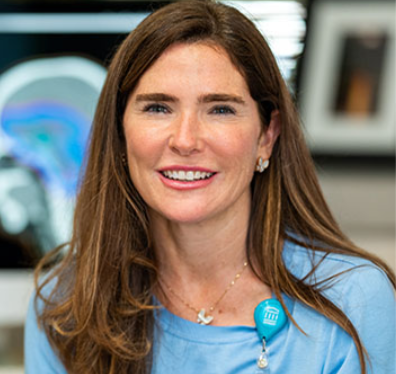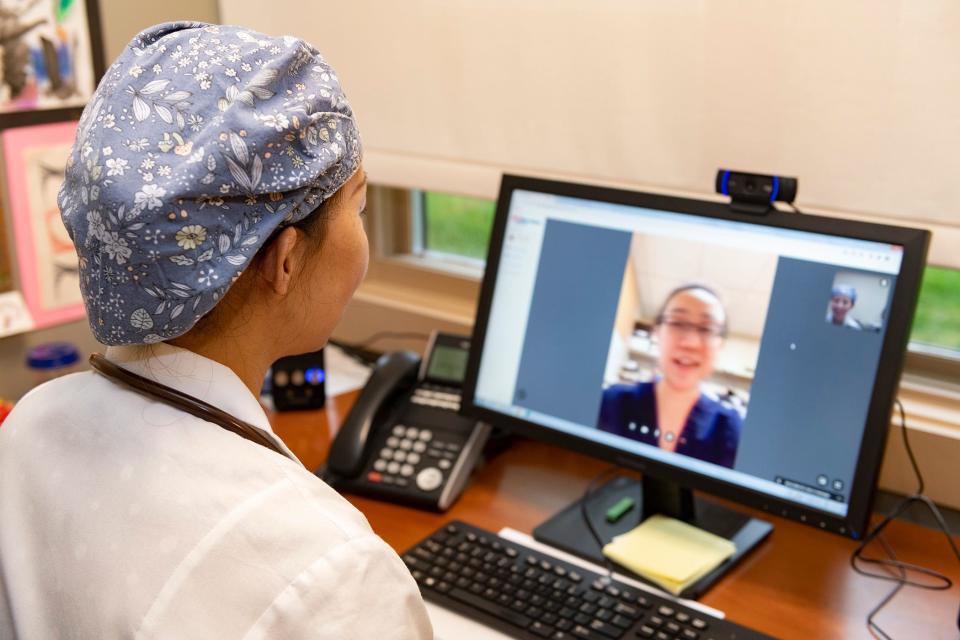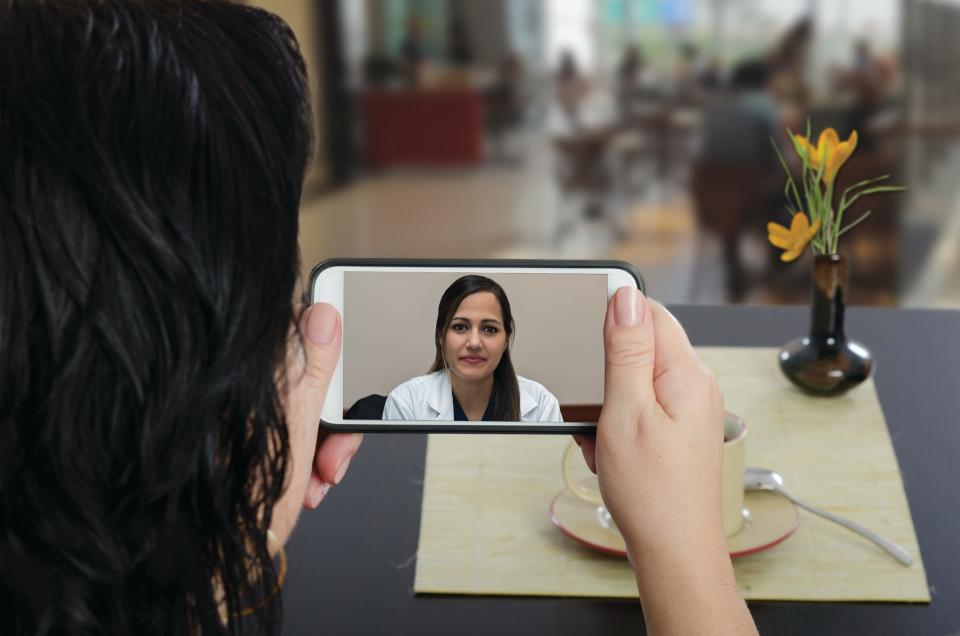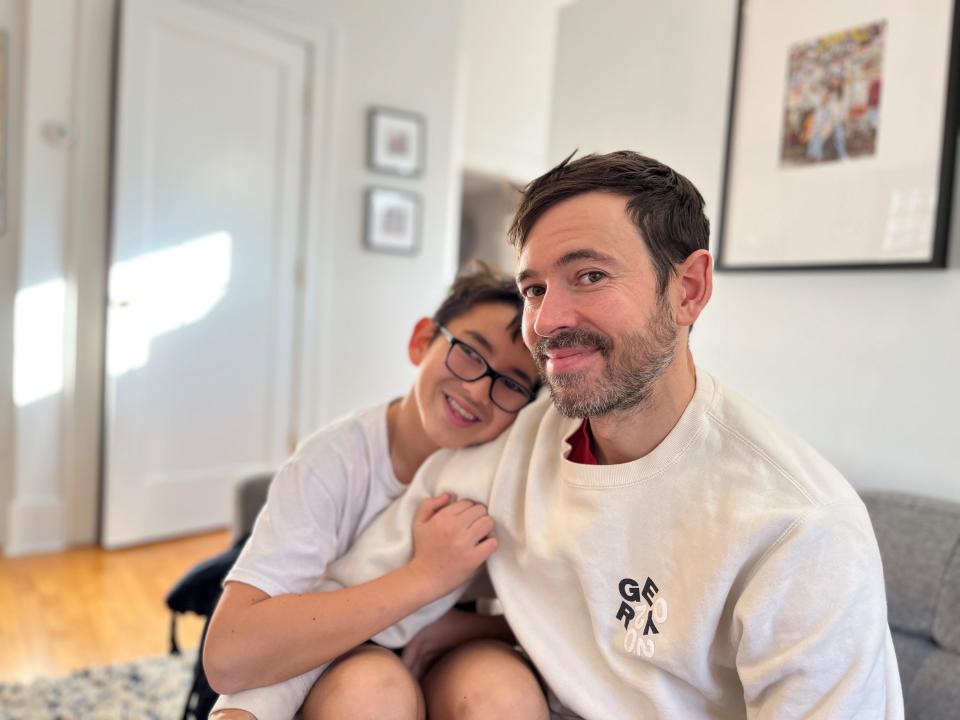NJ's telehealth rules prevent residents from seeking the best care, suit argues
When Jun Abell was diagnosed with a rare brain tumor in 2012, his father Mike called up specialists across the U.S. searching for someone who could help his toddler’s dire prognosis.
The Essex County man found one in Dr. Shannon MacDonald, a radiation oncologist at Boston’s Mass General Cancer Center and one of the few experts at the time in proton therapy, which targets cancer cells and kills them with radiation without harming healthy brain tissue.
Now MacDonald says the type of service she offered the Abell family could be disrupted because of New Jersey’s telehealth regulations.

In a lawsuit filed last month against the head of the state Board of Medical Examiners in U.S. District Court in Newark, lawyers for MacDonald and other plaintiffs argued the state's telehealth regulations limit New Jerseyans' ability to consult with out-of-state doctors — especially those who treat rare diseases and attract patients from across the U.S.
MacDonald said she was barred from conducting telehealth consultations with New Jersey patients when New Jersey's temporary license program put in place during the COVID-19 pandemic ended last year.
NJ license requirement limits access to doctors
The lawsuit filed by the Pacific Legal Foundation, a California-based public interest law firm that champions libertarian causes, said requiring all out-of-state doctors to become licensed in New Jersey in effect harms patients by delaying care and limiting the doctors they can see via telehealth.
The foundation hopes a victory would set a precedent across the U.S. in states that have similar regulations on telehealth.
"The goal is to free physician-specialists already licensed in a state from the need to be licensed in every other state where a patient may be physically located," said Jennifer Ohman, a spokeswoman for the foundation. "As physician licensure is substantively the same in all 50 states, there's no need for physicians to be licensed in every state."

The Board of Medical Examiners declined to comment on the lawsuit, said Michael Symons, a spokesman. A deputy attorney general representing the board and its president Dr. Otto Sabando has not yet filed any documents with the court arguing against the complaint, records show.
The lawsuit said physicians looking to be licensed in New Jersey must pay $550, agree to a background check, have fingerprints taken and submit "significant documentation." It claims the average processing time is three months compared to 24 hours under New Jersey's emergency licensing program during the pandemic.
New process may still takes weeks
But New Jersey is changing its procedures. Under a bill passed two years ago, the state will be entering the Interstate Medical Licensure Compact, a group of 37 states that allows doctors to obtain licenses in multiple states. The lawsuit says the new licensing process will still take weeks, which it argues is too long for many patients with rare diseases who are seeking help from a small pool of specialists across the U.S.
Among the plaintiffs in the case is Bergen County resident Hank Jennings, whose family sought out cancer specialists via telehealth when he was diagnosed at 19 with a rare tumor at the base of his skull called a craniocervical junction chordoma.
Jennings and his mother eventually relocated to Pittsburgh, where he underwent four surgeries to remove the tumor and undergo inpatient rehab. He missed a semester of college but returned nine months later to New Jersey.

His lawyers argue that going to every follow-up appointment in Pittsburgh is too burdensome for Jennings when some can be done remotely in his dorm room or home. Jennings "would have to decide between spending considerable time and money to obtain care or forgo treatment from his specialist team," the lawsuit states.
A family's search for a specialist
Jun Abell had a normal infancy and was just beginning his toddler years when he stopped walking soon after learning. He crawled but didn’t try to crawl up the stairs as he had done before. He appeared lethargic. An MRI would show a cancerous tumor called pineoblastoma in the center of the brain that accounts for fewer than 1% of all brain tumors.
The toddler had two surgeries to remove the cancer, followed by several rounds of chemotherapy and stem cell replacement at NYU Langone in Manhattan. His medical team suggested he undergo radiation therapy to kill any lingering cancer cells to guard against the tumor growing back.

Mike Abell scoured the internet and called up radiation specialists all over the country in hopes of finding the best.
“These are things you don’t want to Google,” he said. “We were terrified over radiating a child’s brain. But then we met Dr. MacDonald and she made us feel comfortable.”
Nine months after he was diagnosed, Jun and his family went to Boston, where he spent 28 days receiving proton radiation treatment from Dr. MacDonald. “The statistics around this disease are not good,” Mike Abell said. “But we felt that if we did everything, he would have the best chance to survive this.”
Jun underwent brain scans every three months, then every six months and then yearly in the metropolitan area. Two or three years into it, there was an unusual mass found in his brain. Mike Abell had the images sent to MacDonald, which she and her colleagues examined and determined were not a major concern.
Today, Jun is still in the clear. He is a seventh grader and lives an active life playing sports.
Although the Abell family consulted with MacDonald mostly via phone before telehealth took off, they said they absolutely would have used video conferencing with her prior to their six week stay in Boston and after the radiation treatment for checkups and consultations.
But Mike Abell said he still wants his family and any other family in a similar situation to be able to consult any specialist anywhere via telehealth without any interference regarding licensing. He said MacDonald asked him to join her lawsuit and he gladly complied.
“As parents, you’re doing whatever you can for your kid,” Mike Abell said. “A law shouldn’t stop it.”
This article originally appeared on NorthJersey.com: NJ telehealth rules block patients from best care, suit says

